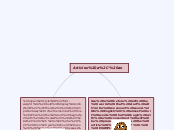によって Angie Montealegre 6年前.
1070
The Connectors
The text explores various types of connectors used in English to link phrases, clauses, or sentences, facilitating coherent and effective communication. It categorizes connectors under different functions such as time, giving examples, expressing consequences, adding information, ordering elements, and contrasting ideas.









